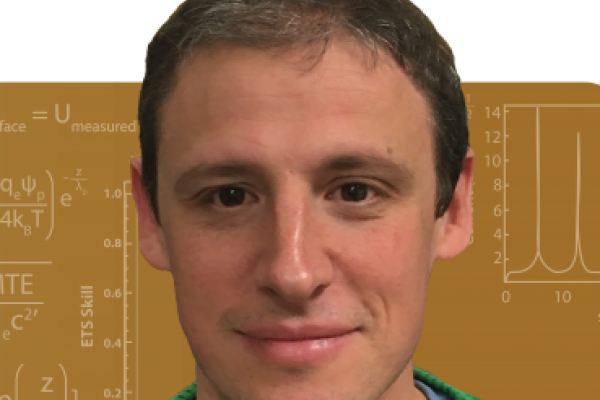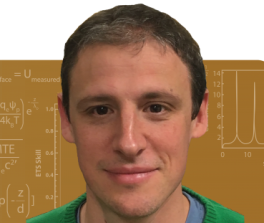
Colloquium: Dr. Martin Centurion, University of Nebraska – Lincoln
Imaging ultrafast molecular dynamics with electron diffraction
Event Details
- Location: 1080 Physics Research Building, Smith Seminar Room
- Faculty Host: Louis DiMauro

Abstract: This presentation will give an overview of capturing structural dynamics and 3D structures of molecules in the gas phase using ultrafast electron diffraction. The conversion of light into mechanical and chemical energy, at the level of individual molecules, is an essential process that drives chemical reactions such as vision and photosynthesis, and is important for solar energy conversion and storage. In order to understand and control these reactions, it is essential to observe them as they occur on the femtosecond scale and in real space on the atomic scale. We use ultrafast electron diffraction (UED), which probes changes in molecular structure with femtosecond and sub-Angstrom resolution, to observe the reaction dynamics. I will discuss recent applications of UED to capture coherent nuclear motions and structural rearrangements in photoexcited molecules. Additionally, I will describe recent experiments aimed at 3D structure retrieval, which take advantage of laser-based methods to control the orientation of the molecules. We show that UED can be used to follow laser-induced rotational motion and reconstruct the rotational wavepackets, and that diffraction measurements from aligned molecules provide structural information beyond what is accessible from measurements on randomly oriented molecules.
Bio: Martin Centurion is the Susan J. Rosowski Professor of Physics and Astronomy at the University of Nebraska – Lincoln. He received his BS in Physics with highest distinction from the University of Michigan – Ann Arbor in the year 2000, and his PhD from Caltech in 2005 in the group of Prof. Demetri Psaltis. He was a Postdoctoral Scholar in the Center for the Physics of Information at Caltech for a year, and then from 2006-2009 he was an Alexander von Humboldt Postdoctoral Research Fellow at the Max Planck Institute of Quantum Optics in Garching, Germany. In 2009, he joined the University of Nebraska – Lincoln as an Assistant Professor, was promoted to Associate Professor in 2014 and to full professor in 2021. In 2010 he was a recipient of the of the Early Career Award from the Department of Energy Basic Energy Sciences, and in 2020 he became a fellow of the American Physical Society.
